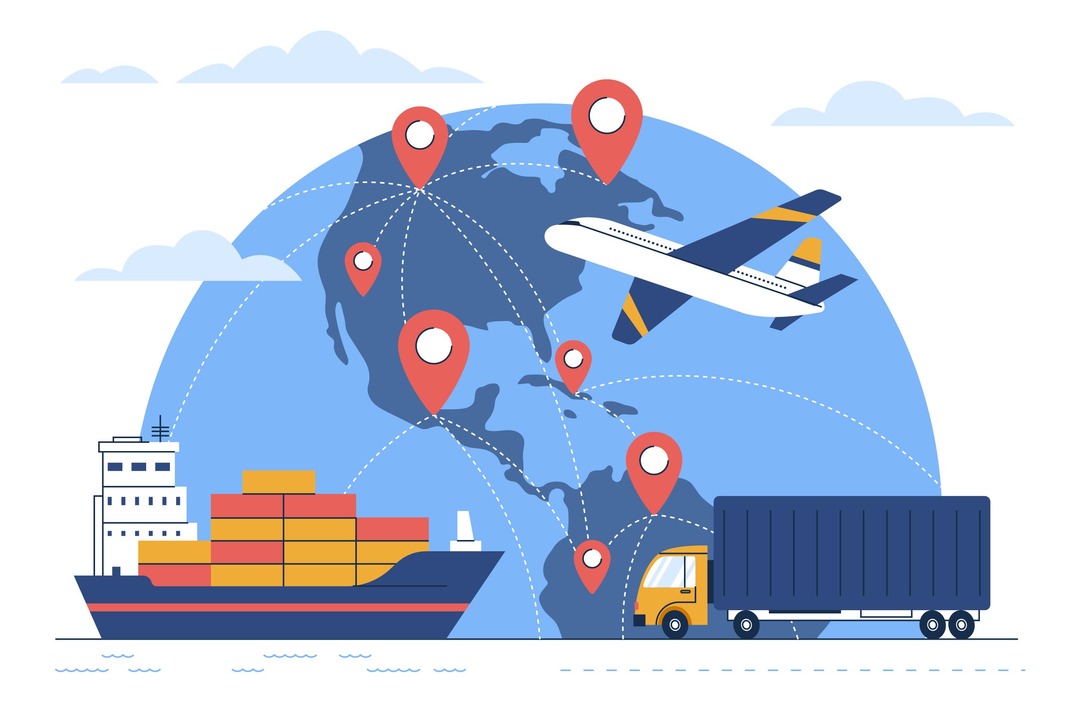The Role of Supply Chain Management Systems in Global Trade

In a large canvas of global commerce, managing intricate processes of procurement, production, logistics, and distribution requires attention to detail and effective organization. In other words, this simply means they have to plan each activity with exactitude in performance, optimizing efficiency right from the supply chain. At the heart of this labyrinthine choreography are supply chain management systems (SCMS) which are seen as indispensable digital infrastructure reshaping how businesses should operate in the global marketplace.
Supply Chain Management Systems is a set of software and tools ensuring an easy and smooth performance of the activities related to supply chain operations. They include supplier relationship management, transportation planning, order processing, and inventory management, all integrated into one package. These supply chain management systems, therefore, provide the business with a 360-degree view of the whole supply chain and thus a straightforward, rapid approach to making data-driven decisions, readily finding areas of improvement, and adapting to the changing market dynamics.
The Foundation of International Trade: Sourcing and Procurement
The first and most important step of global commerce is sourcing and procurement which are visualized as the beginning of supply chain management. In the world of global commerce, every business has to find credible suppliers, make agreeable contracts, and ensure the quality and timely delivery of raw materials or semi-finished products from other countries. This includes forming solid relationships with suppliers, carrying out due diligence, and managing the logistics for importing goods. These effective sourcing and procurement strategies help in the optimization of costs, maintenance of product quality, and meeting the demands of customers.
The Lifeline of Global Trade: Logistics and Transportation
In effect, transportation serves as the lifeblood of international trade supply chains. Effective logistic and transportation systems will result in the easy flow of goods from production facilities to distribution centers and ultimately to customers worldwide. It will encompass a holistic approach, covering the appropriate choice of transportation mode, optimization of routes, and management of customs procedures in coordination with other logistics providers. This will help in avoiding delays while reducing costs and, at the same time, ensuring on-time and reliable transportation as the base to meet customer requirements.
The Backbone of Global Operations: Warehousing and Inventory Management
Warehousing and inventory management are essential to supply chain management in international trade. Businesses strategically locate warehouses to store products closer to target markets for a reduction in lead times and shipping costs. Efficient inventory management practices like just-in-time (JIT) minimize the level of excess stock while ensuring that the stock levels are optimized to the extent that will satisfy the demand of their customers. Exact inventory tracking, efficient order fulfillment, and effective stock rotation can guarantee proper management of supply and demand fluctuations in global markets.
The Shield Against Uncertainty: Risk Management and Resilience
Each business is supposed to assess the potential risks that it may face—from natural disasters to political upheavals, from trade barriers to supplier disruptions—and finally, develop contingency plans to maintain continuity. The international trade supply chain management should be sensitive to risks that may cause very easy disruptions in the flow of goods and information. This could be done through supplier diversification, alternative transportation routing, or even the technology deployment in the supply chain, which ensures visibility and thus is positioned for proactivity in monitoring disruptions.
The Key to Collaboration: Collaboration and Information Sharing
The success of supply chain management in global trade is humanly dependent on collaboration and the sharing of information between all parties involved. For this to happen, companies need to develop strong relations with the supplier and, similarly, the logistics provider and the distributor to work in tandem without disrupting communication and the flow of information. Technology plays a vital role in facilitating collaboration, with tools such as enterprise resource planning (ERP) systems, supply chain management software, and real-time tracking systems enabling enhanced visibility and communication across the supply chain.
Conclusion
It is through this overview that it can be concluded that supply chain management systems form the core of global trade, assisting businesses to ply through the complexities of global-level commerce with flexibility, swiftness, and the adaptability that they need to be successful. Through these digital platforms and technologies, such companies can fine-tune their operations, manage risk, and move into sustainable growth in the world of global trade interconnections.
We at Arena Softwares understand how supply chain management has a critical role in the success of businesses in the world market. As the leading provider of software for supply chain management, we commit that businesses are fully equipped with the tools that prepare them for success in today's dynamically competitive landscape. Our revolutionary solutions empower entities to smooth operations and enhance visibility and data-driven decision-making, all leading them to go green in the global economy toward sustainable growth and prosperity.
Excellence in supply chain management is becoming even more critical in the global economy with dynamics shifting, for businesses looking to remain at the competitive forefront. With Arena Softwares at your side, you will unleash the potential of your supply chain, fine-tune processes, and realize new business growth and expansion opportunities in the world with a high degree of change in international trade.
